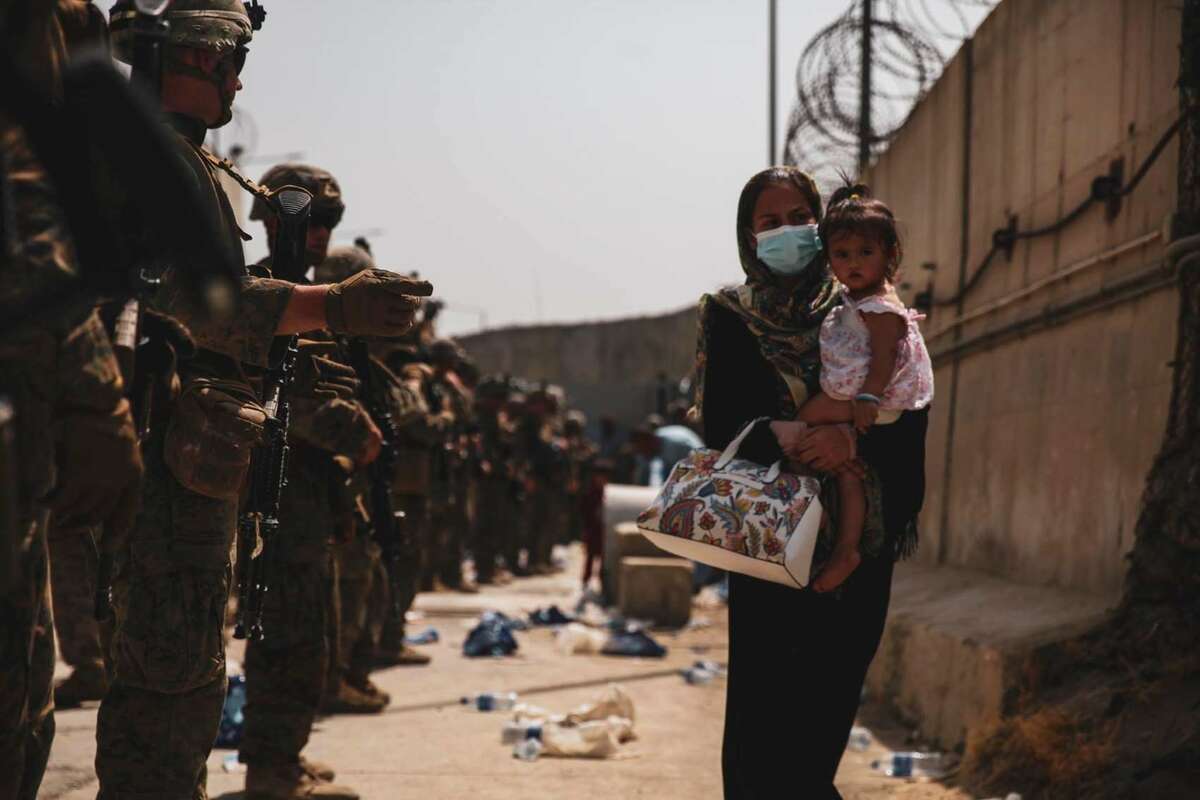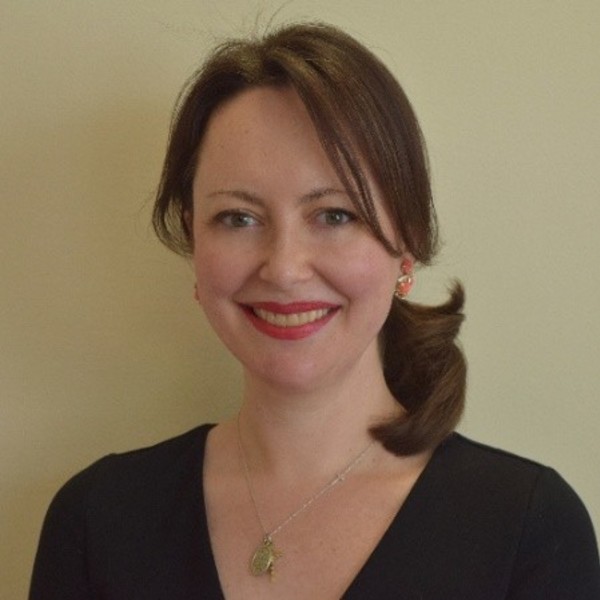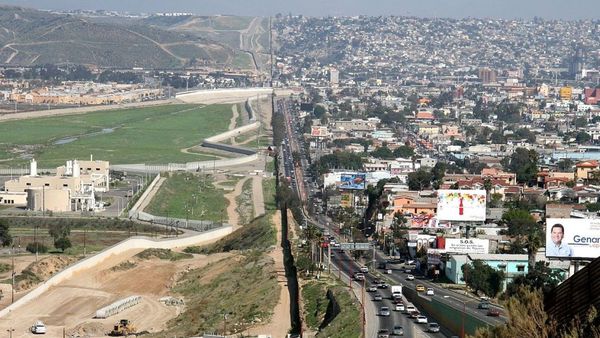I have never met my friend. I know her name, but I cannot tell you what it is. I know her voice, the way the accents of her native Dari and Pashto give a subtle purr to certain English phrases—but I cannot tell you what her voice sounds like in a room: its resonance, its complete shape, unlatched from the electronic arc of a Skype call.
This is how I first met my friend, a colleague from my former organization’s Afghanistan office: she appeared early one morning in the blue bedroom of the Washington, D.C., bungalow I shared with my youngest sister and her husband, the two of us summoned across seven thousand miles and ten time zones to each other’s flickering laptop screens. Her headset was arranged beneath her filmy pashmina in a loosely swirled headscarf style, one I will naively mimic the summer ISIS falls and I am seconded to our organization‘s office in northern Iraq, where women rarely wear headscarves and strangers will ask if I am Iranian.
At first we share a duty: we are management counterparts on a small but innovative project to boost women’s literacy and maternal and child health in the impoverished rural reaches of Afghanistan’s Herat Province. It is a place I will never visit, but a homeland she knows well. I can tell she is over-qualified for the job: she speaks impeccable English; she completed her graduate degree at a respected American university, on a prestigious fellowship that I myself would have liked to win. But I know that in her country a good job is hard to find and keep, especially for a woman.
In those first months, she works with precision and skill and I can trust her to implement wisely, as she can trust me to manage the US-side bureaucracy that encumbers even modest projects like the one we helm. It is easy to work with her. I am happy to get up in the early darkness to talk with her, to complete our work as the sunrise glows through the tall window behind me.
Things change when she marries. Her wedding is an occasion for the happiness that comes with any colleague’s marriage, but also for greater disclosure and little gifts: the unhidden delight in her face and voice reflexively mirrored in my own, the happy busy-ness of the Afghan project team’s preparations for her extended honeymoon absence, which I am glad to approve. For me, there is especially the joy of her wedding as a bridge between our religions, something holy we can celebrate unreservedly together.
“It has been a long time coming,” she says once when she mentions her fiancé. I know she is younger than me—in her early thirties, about the same age as my sister. In the course of conversation she drops little hints of a love story delayed by economic and social complexities, and of her fiancé’s happy and hard-won ability to provide for their family.
Things change and deepen again when she bears her first child. I am still living in the bungalow with my sister, her husband, and now, my newborn nephew. My friend’s daughter and my sister’s son are born within months of each other and in the midst of emails and calls about literacy course designs, telecommunications contracts, and negotiations with tribal elders, our Skype feed fills up with news about the babies’ health, cheeks, and smiles, and snapshots revealing living rooms and family holidays.
Then, unexpectedly, I am engaged: the spectacle of a middle-aged woman marrying a widower with children at home. My friend and I meet for a final Skype call as I close up the job I have held for nearly a decade, preparing for life as a stay-at-home mother of a large household. All around the little world of my professional and personal lives, from Dhaka to Amman to the United States, there are opinions about the speed of the courtship, the reasons for my choice, the thanklessness of a stepmother’s lot. But she is happy for me: I will be a wife and I will be grafted in as a mother. She inquires gently about my decision to pause work, and I can tell she is protective of me, even as she hopes with me for happiness in my new family.
***
When I conclude that life, I quit it with finality. But on the way to the end, I ask myself: is it worth it? Not just to give up the income or the satisfaction of good work, but to lose the self-knowledge peculiar to storge with companions whose understanding of the world is radically distinct, even when bounded by similar spiritual disciplines and values of prayer, feasting, fasting, sexual ethics, and family life. Since childhood I have sought this kind of encounter and the humility and generosity it exacts, and in adulthood I have relied on it to spur a deeper examination of conscience.
“Don’t worry,” my godmother laughs, “children will do something similar for you.” She is right. I marry and my days overflow with the gift of sharing a home with and gladly serving my husband and his children, especially the three adolescent boys still at home who intermittently long for maternal care and buck against it, grieving anew their mother’s illness and death. We keep her portrait by the front door, where it hung for years before I arrived. Sometimes when I am alone I stop and implore her as my Melkite godmother implores saints in their icons: standing before the image as I would stand before the real woman, begging for her intercession as I try to understand each child’s temperament and needs, accept their grief, and control my own temper when I am exhausted. I totally forget my Skype account, which percolates with cheerful messages from the friends of my old life.
Six months into marriage, I take a part-time job leading a classical education consortium’s global expansion. It is helpful for me to have something else to do; it keeps my detachment in-check as the children’s affections wax and wane, and when the summer comes, it gives the children who are grieving most deeply the relief of my absence for a few hours every day.
***
In late July, my friend tries to contact me. I do not see her Skype message, and in the volleys of domestic life, I barely keep up with the news and I do not know about the worsening situation in Afghanistan.
A few days before I depart for a work trip to launch a new classical high school in Iraq, she finds me online and sends an elegant but urgent message asking for my help in securing my former organization’s official P2 visa referral, as required for the new refugee immigration relief program available to Afghans who have worked with US-funded humanitarian projects—especially Afghans like my friend who have focused on women’s literacy, health, and social participation, projects at odds with the Taliban’s view of women’s dignity.
“Thank you for finding me here,” I write back to my friend as I scramble to pack for Iraq and get groceries and school supplies marshaled for the boys. “Let me ask some friends at the US HQ. If you don’t hear from me within a week, please text me again,” I write.
But within a week, I am in Erbil, Iraq and Afghanistan’s collapse is imminent. At my Iraqi colleagues’ home, Al-Jazeera runs constant coverage of the chaos in Kabul. My heart sinks; I try to call my friend but I miss her, so I text her again. “I didn’t know it was so bad,” I tell her, “I am so sorry. Let me ask again and see what we should do.”
Thus begins the feverish blur of the fall of Afghanistan. While my friend rides out the country’s convulsions from Herat—a good two days’ drive from Kabul—I stay up nights on phone calls, emails, and text threads about evacuation flights, visa options, and legal remedies. Friends and acquaintances draw in contacts from Capitol Hill, USAID, the US military, and the US intelligence community.
Twice I secure seats on evacuation flights for my friend and her family; twice she declines, with deep apologies: they cannot risk the overland trip to Kabul, and they cannot risk a fatal separation from their three-year-old daughter, whom they sent to relative safety with trusted friends across the border just before everything closed.
Can I help them get the P2 visa? Can I help my friend and her husband—also an accomplished, US-educated humanitarian leader—get suitable jobs and professional visas to work in the US or Europe? She entrusts me with their passport numbers, birthdates, and detailed accounts of the regular, direct, and violent threats the Taliban has levied at their family for many years. This is all offered via text and at a manic pace, and I barely pause to consider the gravity of the stories I am passing on to officials and advocates in the US. “It is hard to relive these memories,” she writes, “There are some things you just want to forget.”
I stop. It is 2am in Erbil, the city’s warm breath swirling the curtain at my fifth floor window, which is open to the city skyline as it blinks against the black desert night. From where I sit on my hotel bed, my friend is less than a day’s drive away—roughly the same distance from my Washington, DC, home to my Missouri hometown. I think about the many times I have driven that interstate route: north through Ohio or south through Kentucky, into the Appalachians and the familiar green flatlands of the American Midwest. It seems impossible and perverse that I am not able to breach this short distance and help her, somehow jam the levers of politics and circumstance so that she can reunite with her child and make it to safety.
Work continues in the daytime, and the classical high school launches with happy success. Visa and evacuation negotiations continue by night. A group of current and past staff members from my former organization coalesce around my friend’s plight. We start to figure out the implicit architecture of the P2 visa referral process, and we map out a strategy about how to advocate for my friend and her family. Other friends in the private sector offer information about job opportunities in the US. Things keep moving, but nothing is resolved. It becomes clear that I will leave Iraq before my friend leaves Afghanistan.
We sometimes call God “Him who is able to do immeasurably more than all we can ask or imagine, according to His power at work within us,” I text my friend, remembering Ephesians 3:20. Maybe you have something similar in your own religious beliefs. I will do everything I can to support whatever next step you choose, and I pray that the outcome is even better than what you hope for or imagine.
On Saturday night, almost a week after Afghanistan’s Taliban takeover, my plane backs out of the dock at Erbil’s international airport. I feel a pang of sorrow or separation. It doesn’t fit—I am going home to my husband and our children, and I am relieved at the thought. I think of my youngest stepson circling the phone when my husband makes video calls to me, shyly eager to tell me everything that has happened in my ten days’ absence. While he is still in earshot, I tell him I miss him—even if he cannot yet say he misses me.
What am I leaving behind here? I think about this as the plane taxis down the dark runway, past the desert’s low hills, their shape discernible only by the glittering notches of family compounds lit and dotting the ridges. I am leaving behind my friend, across the brief thousand miles that separate us, and I do not know if I will ever see her face-to-face.
Giving Links:


